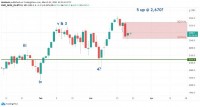|
Opalesque Industry Update -
In an open letter addressed to European Internal Market Commissioner Michel Barnier on March 15, 2010, EDHEC-Risk Institute has warned of the dangers of prohibiting “naked” sales of sovereign credit default swaps. Besides the fact that the lack of convergence on these issues with the US authorities leaves little hope of the measures being effective, EDHEC-Risk Institute thinks that this ban would pose numerous problems and run up against legal and practical obstacles that would make it inapplicable or even counterproductive: It will be impossible for intermediaries and ultimately for regulators to verify investors’ holdings of the securities representative of the risk the credit default swaps are assumed to cover. A strict obligation to use credit default swaps to hedge the risk of sovereign debt would prevent sovereign nations from issuing long-term debt, as the CDS market for hedges of more than ten years is relatively illiquid. This prohibition would make it harder for countries to manage the interest rate risk on their debt actively, as their counterparties would then no longer be able to hedge the country risk of the interest rate swaps they may have entered into. This active management of the yield curve is a major component in the optimisation of the cost of public debt. More harmful still is that a very strict definition of a naked sale would keep investors who finance public investment or companies that enter into contracts with sovereign nations or with state-owned companies from hedging the default risk of their counterparties. At a time when public-private partnerships and private financing of public infrastructure projects are considered one of the drivers of global growth, making it harder to manage country risk may, at the very least, increase the costs of these partnerships and this financing and, at worst, prove a major hurdle to their development. Finally, by making the market for hedging default risk more complex, the markets may be deprived of the debt of countries with low ratings, of investors, and thus of liquidity, which will inevitably increase the cost of this debt. It must not be forgotten that the primary reason for the plunging ratings of Greek debt—and the sharply rising cost—is that the Greek economy and the country’s public finances are in difficulty. By allowing Greece to deviate greatly from the budgetary rules imposed on the eurozone, the leaders of the eurozone have demonstrated blameworthy indulgence. By failing, even in a period of relative growth, to abide by the rules for euro eligibility, the leaders France and Germany, to be sure, set a very bad example for the small and profligate countries of the eurozone. It is always hard to convince others to do as one says and not as one does. It is easy to understand now why Christine Lagarde, who often had to explain to Brussels that the recovery plans for French public finances would not, in contempt of treaties and commitments, be adhered to, would rather dwell on the role speculators have played in the Greek tragedy and in the troubles plaguing the euro than on that played by European leaders. It is not as if we will not see the forest of a European Commission unable to impose budgetary discipline on nations for all the trees of Greek credit default swaps, which, after all, come to a net nominal amount that does not exceed 5% of the Greek public debt. Ultimately, sound regulation of the CDS market depends not on prohibitions but on transparency and on centralised clearing. In this respect, the lag in Europe must be emphasised. For the moment, American market infrastructure dominates the business for the recording and clearing of credit derivatives. Instead of slapping the invisible hand of speculators, it would be more effective for preeminent European countries to agree on a common infrastructure for the euro credit derivatives market.
|
Industry Updates
EDHEC-Risk to the European Commission: prohibiting “naked” sales of sovereign CDSs would be inapplicable, even counterproductive
Monday, March 15, 2010
|
|





 RSS
RSS







